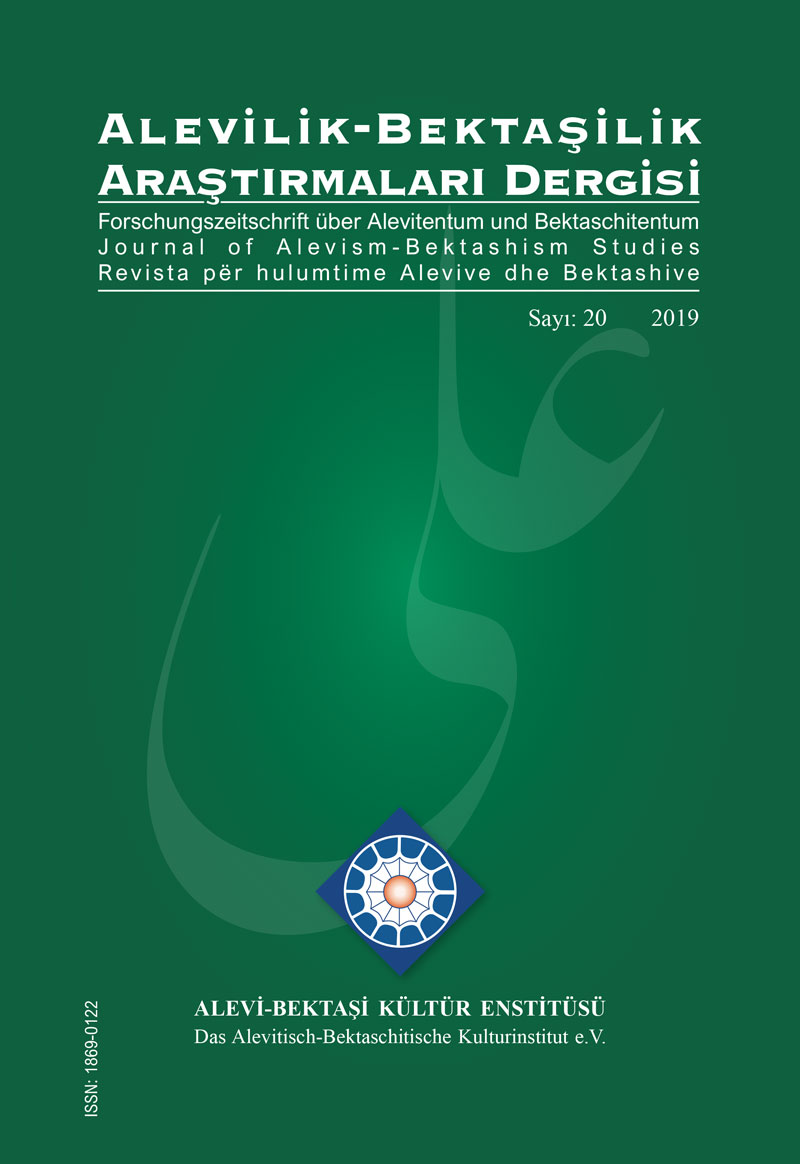Olmak Ya Da Olmamak: II. Meşrutiyet Yıllarında İttihatçılar ve Bektaşiler (1908-1918)
DOI:
https://doi.org/10.24082/2019.abked.233Anahtar Kelimeler:
İttihat ve Terakki, İttihat ve Terakki ve Bektaşiler, II. Meşrutiyet, II. Meşrutiyet ve Bektaşiler, Cihan Harbi ve BektaşilerÖzet
1826’da Yeniçeri Kırımıyla birlikte onlarla iş birliği halinde görülen, dahası Yeniçerileri kışkırttıkları ileri sürülen Bektaşi tekkesi de tasfiye edilmek, tekkenin geleneksel inancı dönüştürülmek istenmişti. 1826’da ve bu yılı takip eden yıllarda tekkenin bazı din adamları idam edilmiş, bazı din adamları sürgüne gönderilmiş, önemli miktarda malı müsadere edilmiş, bazı tekkelerin başınaysa Sünni din adamları atanmıştı. Bektaşi tekkesini geleneksel özelliklerinden tasfiye ve Sünnileştirme politikası 19. yüzyıl boyunca sürüp gitmiş, 1826’da başlayan söz konusu politika, Tanzimat dönemi ve ardından II. Abdülhamid döneminde de istikrarlı bir biçimde uygulanmıştı. Tasfiye ve Sünnileştirme politikasına karşı Bektaşiler direnmiş, kendi inanç ve ritüellerini ayakta tutmaya gayret etmiş, tekkelerine ve din adamlarına sahip çıkmaya çalışmışlardı. II. Abdülhamid rejiminin meydana getirdiği ve on yıllarca süren istibdat rejimi nihayet II. Meşrutiyet’in ilanı ile sona ermiş, Hürriyet, Bektaşiler tarafından da sevinçle karşılanmıştı. Bu yıl Bektaşiler de Hürriyet’e kavuştukları ümidine kapılmışlar, artık kimliklerinin tanınmasını çeşitli yollarla meşrutiyet hükümetlerinden talep etmişler, dilekçeler yazmışlar, kendi din adamlarının tekkelerin başına getirilmesini talep etmişlerdi. Bu makale II. Meşrutiyet yıllarında Bektaşiler ile meşrutiyet yıllarındaki hükümetler ve İttihat ve Terakki Hükümeti arasındaki ilişkiyi araştırmakta, Bektaşilerin Hürriyet’ten beklentilerini, kimliklerinin tanınması arayışlarını bir başka ifadeyle yasal sınırlar içinde olmak ya da olmamak sürecine odaklanmaktadır. Makale, İttihatçıların önce denetleme ve ardından tam iktidar oldukları döneme odaklanmakta, 1908-1918 yılları arasında İttihatçı iktidarın Birinci Dünya Savaşı yıllarına kadar sürdürdüğü ve Birinci Dünya Savaşı yıllarında gerçekleştirdiği Bektaşi siyaseti, Bektaşilerin söz konusu siyasetten beklentileri ve tepkilerini incelemektedir. Makale aynı zamanda İttihat ve Terakki’nin iktidar döneminde Baha Sait ile başlayan ve ardından Mehmet Fuad ile önemli bir aşamaya ulaşan Bektaşi araştırmalarını da incelemekte, bu araştırmaların İttihat ve Terakki’nin gündeme getirdiği milliyetçilikle ilişkisini Bektaşilerin tepkisiyle birlikte değerlendirmeye çalışmaktadır.








